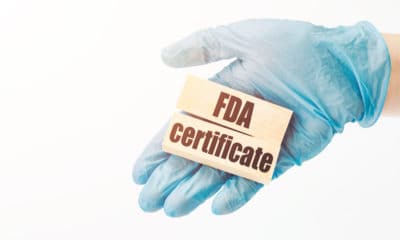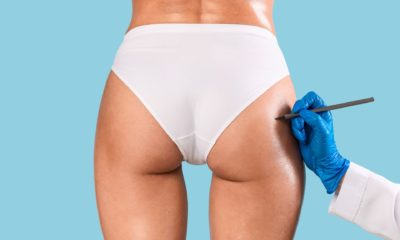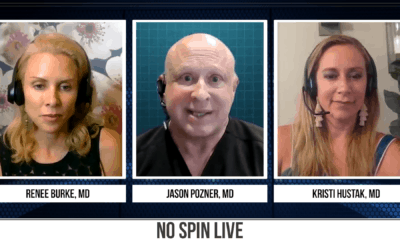A recent two-day hearing before an FDA advisory committee has brought breast implant safety into the spotlight. Are patients getting the full story, or a skewed version of reality? Dr. William P. Adams Jr. hosts No Spin Live Episode 65 on the topic of breast implant news in the mainstream media. Board certified plastic surgeons Dr. Luis Rios, Dr. Jason Pozner and Dr. Charles Messa discuss the latest headlines and how some news outlets are presenting a twisted version of the facts.
“In one article from the Wall Street Journal, they mention how 20% of women have their implants replaced because of horrible complications,” points out Dr. Luis Rios. “Really, we know that the majority of those revision procedures aren’t because of complications, it’s because they want to go bigger or smaller. It’s an elective thing, not because there’s a problem.”
Breast Implant Illness
One major topic making headlines is a subset of women with breast implants who are experiencing autoimmune-type symptoms. The constellation of autoimmune issues making up what is referred to as breast implant illness (BII) includes chronic fatigue, fevers, brain fog and joint pain. While some media reports go so far as to claim that breast implants are the direct cause of these autoimmune problems, research to this point has not backed up that claim.

“When you’re talking about breast implant illness, it’s very replete of information,” explains Dr. Messa. “Symptoms that characterize breast implant illness can be linked to numerous different inflammatory and autoimmune pathways. I don’t know that you can specifically say, ‘You put in an implant, you get breast implant illness,’ because every patient is different, depending on their immunologic makeup. It’s been well-studied and well-documented that there’s not a directly causal effect to silicone implants and autoimmune disease. Patients are very individualized and very different.”
In fact, Dr. Messa has himself presented a prospective study on BII. In his practice, Messa has treated many patients with autoimmune complaints who decided to have their implants removed. “Their autoimmune complaints really didn’t change, but the subjective complaints, from breast pain to discomfort, those kind of things all got better,” he shares.
Raising Patient Awareness of BII with Consents
Some women experiencing autoimmune symptoms they believe to be caused by their implants are concerned that they were not made aware of the risks of possible BII prior to breast augmentation.
“Even if we can’t prove the science and say that it’s a real illness, they can come in the back door and say well you know what, you weren’t given proper consent,” says Dr. Rios. “It’s going to take a little while for the science to get there, so let’s shore up what we can shore up and I think we’ll all be better off, patients and doctors.”

Rios, Pozner and Messa all agree on the topic of updating consent forms provided to patients prior to augmentation to reflect the possibility of autoimmune issues, even if the science hasn’t linked the implants directly to the symptoms.
“Really only over time with large studies can we figure out which cohorts of people may be affected in the population,” adds Dr. Pozner on the subject of BII. “The consents obviously need to reflect this. Our societies are taking this very seriously. We’re studying it further and trying to figure it out; we’ve been working on this for years now. It didn’t come out last week because there was a media report on it. Our societies have a lot of money and time spent on figuring this stuff out. Give it some time.”
Complications are Low, Satisfaction is High
Over 300,000 breast augmentations take place each year. While the majority of women with breast implants are happy with their results, and experience no complications, the bottom line is that there are risks of complications with any elective surgery. As plastic surgeons study and learn more about the potential risks involved with breast implants, whether related to autoimmune symptoms or more serious rare cancers, they are taking steps to minimize those risks and keep their patients informed.

“The media likes to hype the negative, as opposed to really giving you all of the factual data that’s out there,” says Messa. “Breast augmentation continues to be the number one cosmetic procedure performed. The ASPS statistics show there’s a 48% increase in the number of breast augmentations done in the last 18 years. We have more and more women who have breast implants, so, relatively speaking, while its a very small number, more and more women are going to potentially have complications or problems.”


















Facebook
Twitter
Instagram
YouTube
RSS